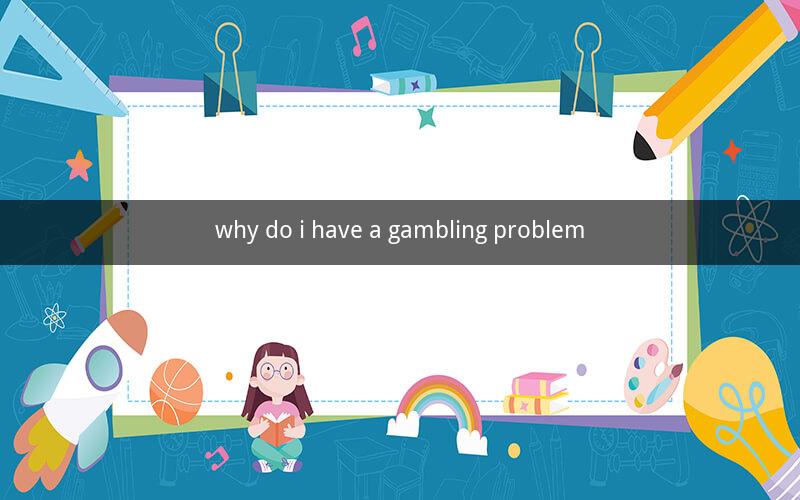
Why Do I Have a Gambling Problem?
Table of Contents
1. Understanding the Nature of Gambling
- The Definition of Gambling
- The Psychology Behind Gambling
2. Identifying the Signs of a Gambling Problem
- Recognizing Compulsive Behavior
- Emotional and Financial Consequences
3. The Role of Environment and Society
- The Impact of Technology
- The Social Aspect of Gambling
4. Genetic and Biological Factors
- The Role of Genetics
- The Influence of Brain Chemistry
5. Cognitive and Behavioral Theories
- The Role of Cognitive Biases
- Behavioral Patterns in Gambling
6. Dealing with the Problem
- Seeking Professional Help
- Self-Management Strategies
7. Support and Recovery
- Support Groups and Communities
- Long-Term Recovery Strategies
1. Understanding the Nature of Gambling
Gambling is an activity where individuals place bets on an event with an uncertain outcome, with the intent of winning money or other prizes. It encompasses a wide range of activities, from traditional casino games to online betting and sports gambling. The psychology behind gambling is complex, involving a mix of thrill, anticipation, and the potential for reward.
2. Identifying the Signs of a Gambling Problem
One may have a gambling problem if they exhibit certain signs and symptoms. Compulsive behavior, where gambling becomes an obsession, is a key indicator. Emotional and financial consequences, such as mood swings, debt, and strained relationships, also point towards a potential gambling problem.
3. The Role of Environment and Society
The environment in which gambling occurs plays a significant role in the development of a gambling problem. Technology has made gambling more accessible, while the social aspect of gambling can create a sense of belonging and excitement that may lead to overindulgence.
4. Genetic and Biological Factors
Research suggests that genetics may play a role in the susceptibility to developing a gambling problem. Additionally, the brain chemistry involved in the experience of thrill and reward can contribute to the addictive nature of gambling.
5. Cognitive and Behavioral Theories
Cognitive biases, such as the illusion of control and the overestimation of winning chances, can influence gambling behavior. Behavioral patterns, including chasing losses and the use of gambling as a coping mechanism, are also prevalent in individuals with gambling problems.
6. Dealing with the Problem
Addressing a gambling problem often requires seeking professional help. Therapies such as cognitive-behavioral therapy (CBT) can be effective in changing negative gambling behaviors. Self-management strategies, such as setting limits and taking breaks from gambling, can also be beneficial.
7. Support and Recovery
Support groups and communities can provide a sense of belonging and a network of support for individuals struggling with gambling problems. Long-term recovery strategies, including continued therapy and self-care, are crucial for maintaining sobriety.
---
Questions and Answers
1. What is the definition of gambling?
- Gambling is an activity where individuals place bets on an event with an uncertain outcome, with the intent of winning money or other prizes.
2. How can one recognize compulsive behavior in gambling?
- Compulsive behavior in gambling can be identified by a preoccupation with gambling, a need to increase the amount of money or time spent gambling, and the inability to stop despite negative consequences.
3. What are the emotional consequences of a gambling problem?
- Emotional consequences may include mood swings, anxiety, depression, and feelings of guilt or shame.
4. How does technology impact gambling problems?
- Technology has made gambling more accessible and anonymous, which can contribute to the development and exacerbation of gambling problems.
5. What role do genetics play in the susceptibility to gambling problems?
- Genetics may play a role in the susceptibility to developing a gambling problem, with research suggesting a genetic predisposition to addictive behaviors.
6. What are cognitive biases that can influence gambling behavior?
- Cognitive biases that can influence gambling behavior include the illusion of control, overestimation of winning chances, and the tendency to focus on recent wins rather than long-term losses.
7. How can cognitive-behavioral therapy (CBT) help with a gambling problem?
- CBT can help by identifying and changing negative thought patterns and behaviors associated with gambling, promoting healthier coping mechanisms.
8. What are some self-management strategies for dealing with a gambling problem?
- Self-management strategies include setting strict limits on gambling, taking breaks from gambling, and engaging in alternative activities to cope with stress or boredom.
9. How can support groups and communities aid in recovery from a gambling problem?
- Support groups and communities provide a network of peers who understand the struggles of gambling addiction, offering emotional support and practical advice.
10. What long-term recovery strategies are important for maintaining sobriety from gambling?
- Long-term recovery strategies include ongoing therapy, participation in support groups, developing healthy coping mechanisms, and maintaining a strong support system.